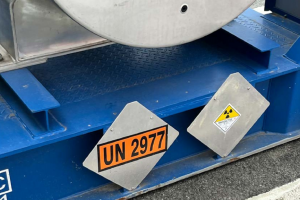Special report: Connectivity across Cheshire & Warrington

WITH a station planned in the historic Cheshire railway town of Crewe, the HS2 rail project has been widely heralded as a fast-track to regeneration
But that’s not a line being taken emerging Northern Gateway project based around Crewe and the planned high speed rail link say it is being developed to maximise growth in the south of the county.
However, Steve Cosgrove of Daresbury-based IT service company Adapt4, worries that the new high-speed rail link will simply act as another “feeder” into the economy of the south of England.
The draw of London is already strong for professionals and he says: “HS2 sounds like a method of bringing more people down to London and the south.
“It doesn’t seem like it is going to help people living and work in the North West so much.”
Download the Cheshire and Warrington Economy special report
Richard Anderson of Knutsford-based Crawford Healthcare is also unimpressed by the prospect of a faster link with the capital. He says of the prospect of getting to London quicker is “irrelevant” to his business.
And he adds: “I find the link between building a big rail line and support for our business tenuous.”
However, Philip Cox of the LEP believes HS2, plus the proposed HS3 rail project connecting Manchester and Leeds, will make it easier to attract businesses to the region.
Faster journey times to London will be another plus point for southern-based businesses looking to relocate, he says. “Rather than thinking it’s a nice place to do business but it takes a long time to get to other places.”
And improved regional transport links will also make it easier for businesses here to tap into a wider labour market.
“The distance between Manchester and Leeds is no bigger than the distance of the central line in London, yet the level of commuting is much, much lower,” he adds.
Henry Brooks of Tatton Estates Management believes HS2 and HS3 are on the way – and Cheshire and Warrington need to be more pro-active – coming up with projects to complement the planned transport improvements.
He says: “We know a HS2 station is coming. Can we come forward with private-sector led schemes that will generate lots of economic benefits and will spin off lots of infrastructure improvements?
“It is about strategic thinking so the government can get a return on the investment it is making in HS2, which will also be HS3.
“Where are the infrastructure improvements that are going allow us to grow and create more jobs?”
Tim Frankland of Warrington-based Claremont Group is frustrated by the timescale for improving the transport infrastructure and wants to see things moving at a quicker pace.
He says: “Good links between Manchester, Leeds and Liverpool in particular are absolutely critical. I don’t see why we should wait 20 years.
“I cannot get my head around why it takes 10 or 20 years to build a rail link between London and Manchester. If everyone agrees that it is a good idea, get on and do it.”
Taking advantage of better connectivity isn’t just about faster rail links, says Katrina Michel of Marketing Cheshire. She believes the sub-region needs to tap into the benefits of Manchester Airport’s ambitious 10-year expansion plan.
Cheshire needs to view the airport as a way of getting into new global markets, she adds, pointing to recently announced direct flights that will open up links to America’s Silicon Valley.
“The agglomeration of the transport links, the airport and the Russell Group of universities in the area does start to make a very strong new business hub. The airport is the key,” Michel says.
“We need to start looking much more globally out from Manchester Airport. It’s about thinking ‘we have got this asset on our doorstep, let’s see how much business we can push through the airport’.”
Download the Cheshire and Warrington Economy special report
Comment: Mark Beardwood, head of real estate for DLA Piper in the North West
If you “scrunched up” all the northern cities and joined them together as one big city, they would operate in a much more effective and integrated way, more as a single, very significant, economic unit, with all the benefits that would bring.
But as you can’t do that, to really make the most of the Northern Powerhouse, it is critical to have quick and efficient transportation connections, within the region.
Clearly, roadways have a part to play in that and the development of self-driving cars may well revolutionise the way we use our road systems and our previously “wasted” driving time.
Air travel within the UK isn’t generally an efficient way to travel; but rail is a key part of any transportation strategy and is ideally suited for business travel.
Those of us who work in the region and have clients or business in London have seen huge benefits brought on by the modernisation of the West Coast Main Line and the consequent significant reduction in travel times between the region and London and the increased frequency of services – no need for sleeper trains between London and the north now!
Both HS2 and improved rail connectivity across the region are vital to our future economic prospects. The procurement and construction processes will create jobs and provide an economic boost.
HS2 is important to improve connections with the economic might of London even if it does (as some argue) result in more trips to London rather than the other way.
But just as important is to modernise our very antiquated regional rail links and really push forward on integrating the Northern Powerhouse.
Parts of the HS2 infrastructure can be used to do that but we need an holistic solution across the north; without that the benefits which HS2 brings will be restricted to pockets of the region, rather than spread across it.
Download the Cheshire and Warrington Economy special report


 If you “scrunched up” all the northern cities and joined them together as one big city, they would operate in a much more effective and integrated way, more as a single, very significant, economic unit, with all the benefits that would bring.
If you “scrunched up” all the northern cities and joined them together as one big city, they would operate in a much more effective and integrated way, more as a single, very significant, economic unit, with all the benefits that would bring. 






